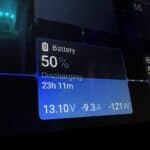
MENUMENU
TALK TO AN EXPERT
Special Hours: 7AM – 6PM PST
TALK TO AN EXPERT
Special Hours: 7AM – 6PM PST
Having a fish finder to locate underwater schools with reflected sound energy makes fishing so much better! You just need a way to power it reliably. If you want the best fish finder battery, you’re in the right place. If you’re feeling confused about the kind of battery you need for your fish finder, we’ve got you covered on that, too!
This article will look at the different power sources for fish finders and give you our top recommendations. Our fish finder battery pick is safe, easy to transport, and will keep you on the water longer.
The boat’s onboard electrical supply powers fish finders, which are wired into the boat’s 12V electrical system and pull power from the marine battery. It will still be battery-powered if you’re setting out on a kayak or have a portable fish finder.
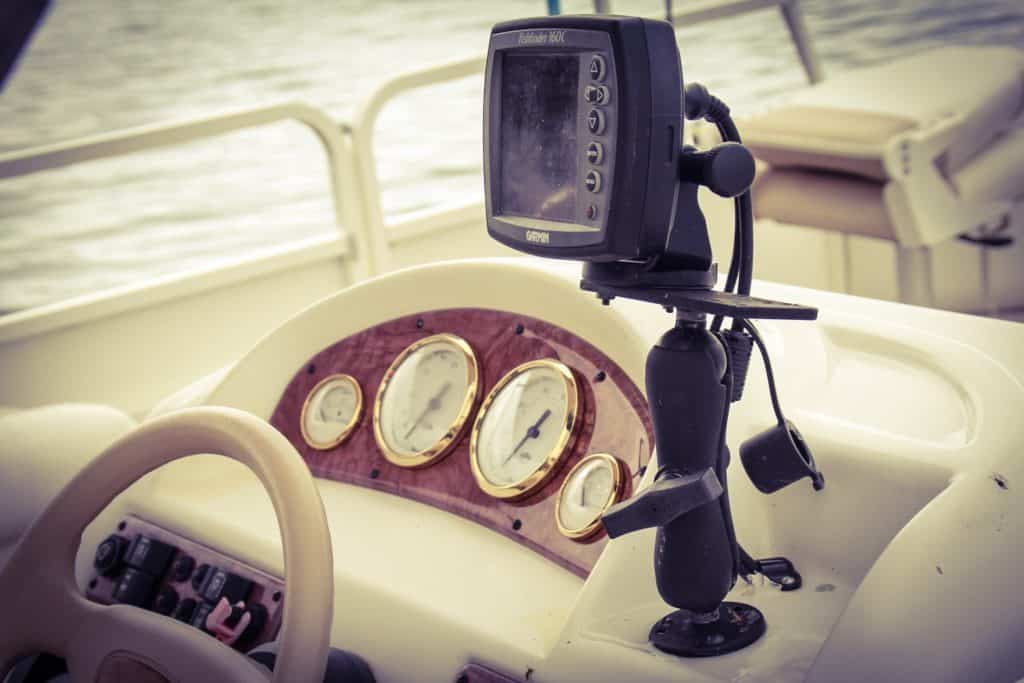
Usually, fish finders will take 12V lead-acid or lithium batteries. Lead-acid has been the standard battery for many years, but more and more fish finders are coming with lithium batteries. There are portable battery options to power your portable fish finder, too, such as the Battle Born 50ah Kayak Kit.
If you have a boat with a power system, it will run both your boat and your fish finder. The built-in marine battery is an essential part of that system. But if you want to head out in a kayak or other boat without an electrical system, you’ll need a separate battery.
In both instances, we think lithium is the best bet! Let’s learn about the different types of batteries that you could use for fish finders.
You can use any 12V marine battery to power your fish finder, but we’re partial to lithium-ion as we mentioned above. Let’s take a look at both battery types, though, so you can decide for yourself.
Sealed lead acid marine batteries have a lead, lead dioxide, sulfuric acid, lead sulfate, and water solution. These are deep-cycle batteries that are standard for most boats and vehicles. They’re cheaper upfront but don’t last as long (3-5 years with little maintenance) as other battery options.
Sealed lead-acid batteries are heavy, can only be discharged down to 50% without damaging them, and last only about a 10th as long as their lithium counterparts.
Lithium marine batteries are rechargeable power cells that use lithium-ion phosphate as a power source with no liquid or acid involved. As a result, these batteries are lighter, and you can mount them in any position. They’ve become popular in aerospace and military spaces as well as the consumer industry. For example, lithium-ion batteries are in your laptops and cell phones.
One of the best things about lithium-ion marine batteries is that they last between 10-15 years. Battle Born batteries come with a 10-year warranty, so it’s clear we stand behind our product. There are several other benefits to using lithium that we’ll explore further on.
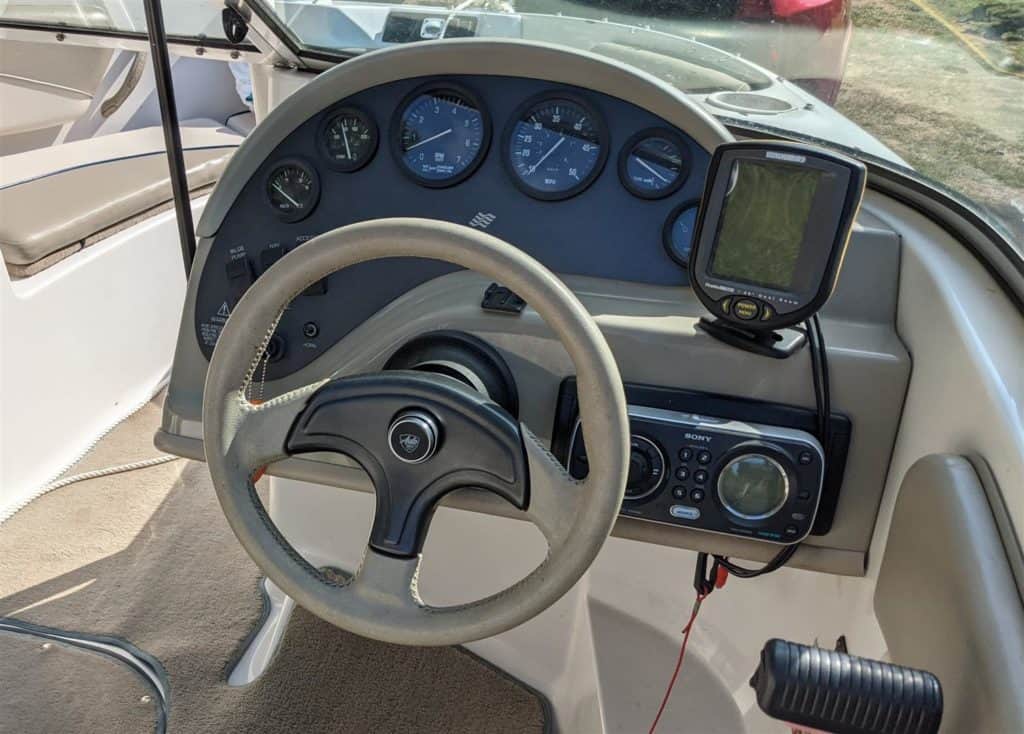
Lithium batteries are a clear winner when powering any deep cycle application, fish finders included. Here are some of the top benefits of using a lithium fish finder battery.
Lithium-ion marine batteries are very lightweight; in fact, most weigh in at just 50% the mass of their lead-acid counterparts. These batteries are easy to transport to and from your boat, and you can even use them in kayaks to power a trolling motor in addition to your fish finder.
Lithium batteries are safe and dependable. To illustrate this fact, let’s compare them to lead-acid batteries, which you shouldn’t discharge past 50% of the battery capacity. Doing so damages the battery, and after a few instances of this, your battery will be completely dead.
However, when you use a lithium battery for your fish finder, you can discharge it to 20% of its capacity without damage. Most lithium-ion batteries have a failsafe switch that registers the battery as dead once it reaches 20% capacity, so you don’t risk damaging it. So, in a manner of speaking, you can discharge it to 100% without fear.
Lithium batteries can charge up to four times faster than a lead-acid battery with the same charging current. This is because lithium batteries accept charge better. They have low internal resistance and charge at a higher current. Since they have low internal resistance and charge at a higher current, they’re able to accept all the energy in a charge cycle, effectively charging much faster than lead-acid batteries.
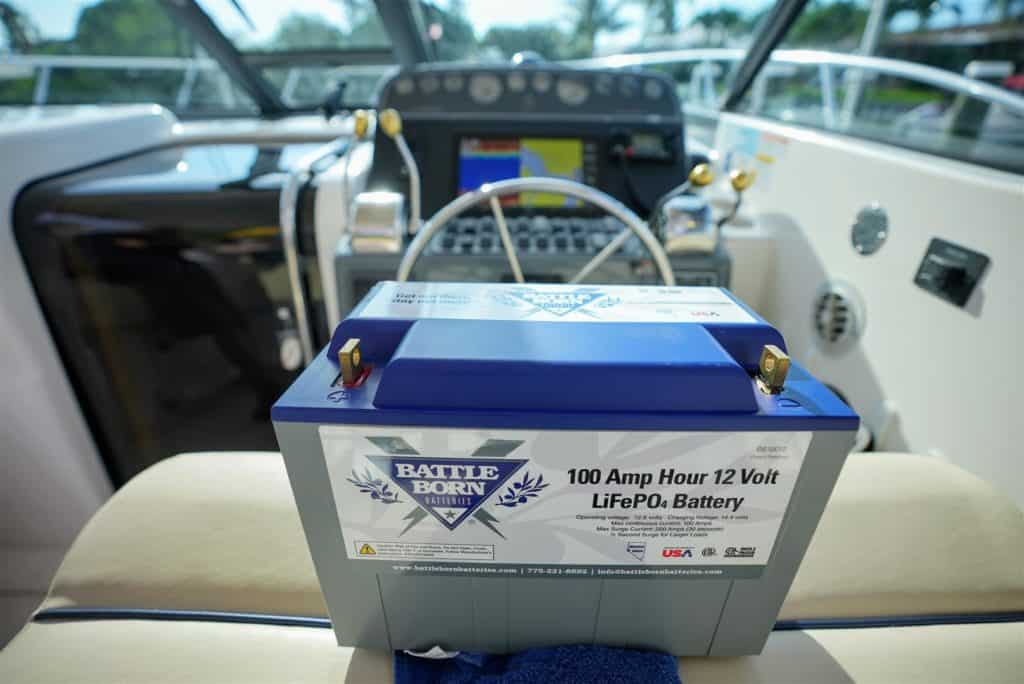
If you use a lead-acid battery in your fish finder, you can expect to replace the battery within one to five years, depending on use.
Lead-acid batteries typically last between 500 to 1,200 charge/discharge cycles. The lifespan of these batteries will decrease if you discharge them to more than 50% of the battery capacity or expose them to extreme temperatures.
However, as mentioned earlier, lithium-ion batteries can last 10 times that of a lead-acid battery. They can go for between 3,000 to 5,000 charge/discharge cycles. Plus, lithium batteries are less susceptible to damage that can shorten their lifespan when compared to lead-acid batteries. For example, you don’t have to worry about over-discharging your lithium battery.
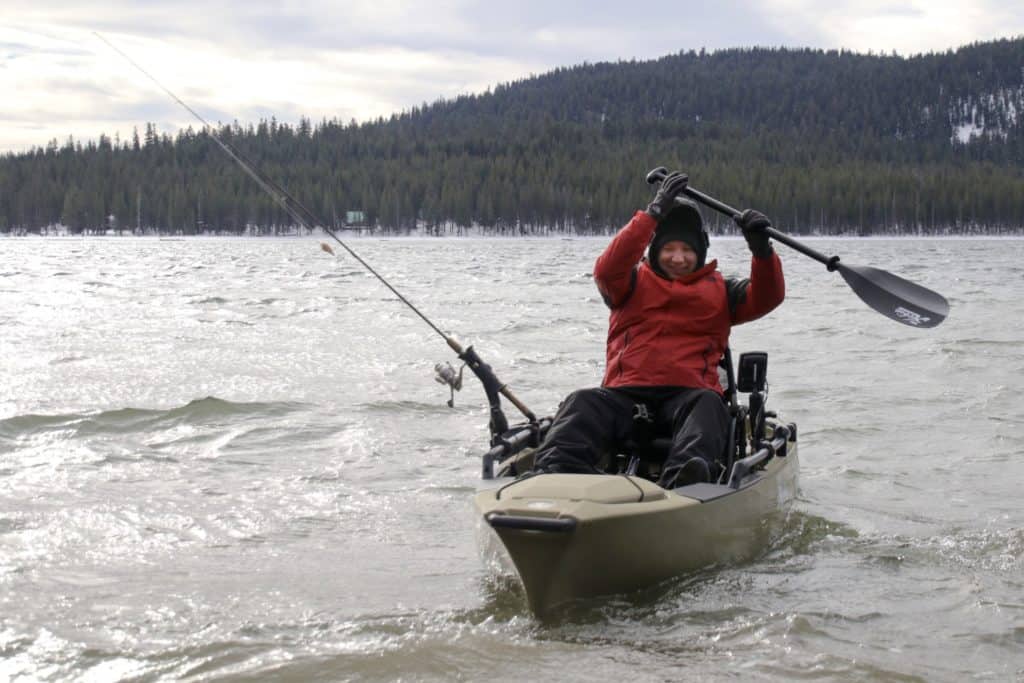
The best fish finder battery for your boat or kayak should have a few qualities. It should be lightweight, water-resistant, have a long lifespan, and be easy to transport.
It’s also important to consider the amp-hour rating of a battery and how that compares to the power draw of your fish finder.
We recommend the Battle Born 100ah or 50ah Kayak Kit for your fish finder battery. These kits are designed specifically for kayaks and small boats and come with a 100ah or 50ah lithium battery and a Victron IP65 battery charger.
When weighing your options between a traditional lead-acid battery and a lithium battery for your fish finder, it seems like marine lithium batteries are a no-brainer.
They’re lighter, can last up to 10 times longer, and be used more often and efficiently. You’ll get your money’s worth over time, and you’ll love the steady power and reliability of the product.
Check out the Battle Born lineup to choose the lithium marine battery that’s right for you!
We know that building or upgrading an electrical system can be overwhelming, so we’re here to help. Our Reno, Nevada-based sales and customer service team is standing by at (855) 292-2831 to take your questions!
Also, join us on Facebook, Instagram, and YouTube to learn more about how lithium battery systems can power your lifestyle, see how others have built their systems, and gain the confidence to get out there and stay out there.
Shop Best Sellers








Ask a technical specialist now at 855.292.2831
Stay in the Know
2 thoughts on “What Battery Do I Need for My Fish Finder?”
Been tryin to run these wires, connections to the bow to feed the fishfinders on this creastliner! Wondering about a power source I can use ?
Hi Mark! Check out our power options for trolling motor applications here: https://battlebornbatteries.com/shop/applications/trolling-motor/